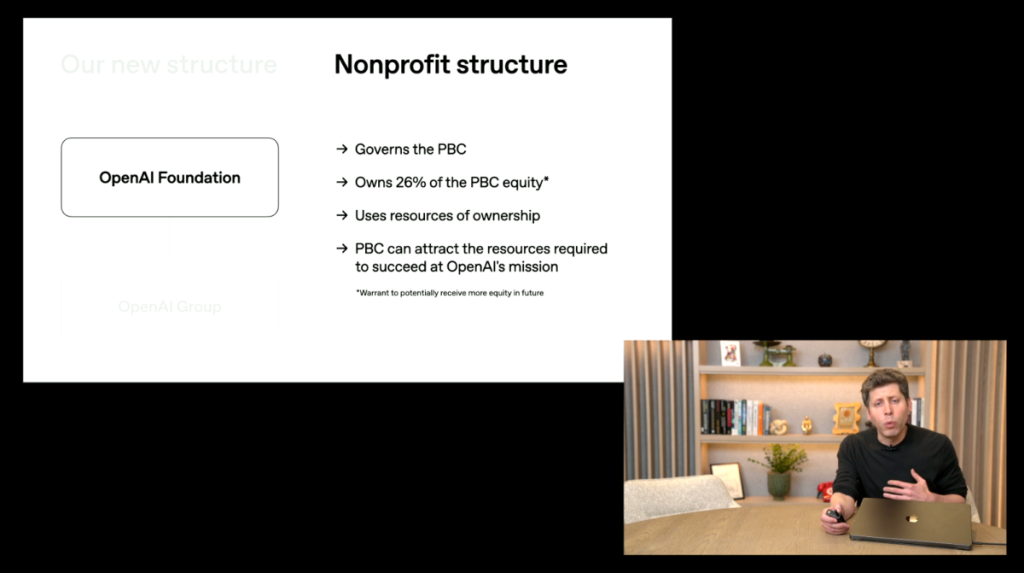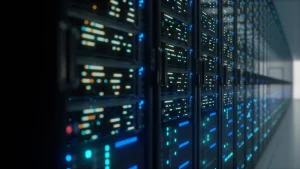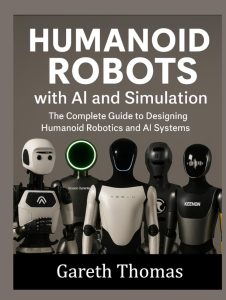Sam Altman predicts OpenAI will employ a real AI researcher by 2028.

Image Credits:OpenAI
OpenAI’s Ambitious Vision: Advancing AI Research by 2028
OpenAI has announced significant advancements in its deep learning systems, revealing a remarkable trajectory toward AI capable of solving complex tasks with increasing speed. During a livestream event, CEO Sam Altman shared that OpenAI aims to create an intern-level research assistant by September 2026 and a fully automated AI researcher by 2028.
Transition to a Public Benefit Corporation
On the same day, OpenAI finalized its transformation into a public benefit corporation, moving away from its non-profit origins. This strategic restructuring allows the organization to overcome restrictions tied to its previous non-profit charter, thereby unlocking new avenues for capital investment.
Jakub Pachocki, OpenAI’s chief scientist, joined Altman during the livestream to elaborate on the ambitious goals. He described the envisioned AI researcher as “a system capable of autonomously delivering on larger research projects,” distinct from a human researcher in AI.
The Road to Superintelligence
Pachocki expressed a bold belief that deep learning systems could achieve superintelligence—defined as surpassing human intelligence across various critical tasks—within the next decade. To realize these ambitious aspirations, OpenAI is focusing on two key strategies: continual algorithmic innovation and significantly scaling up what is termed “test time compute,” referring to the duration during which models engage in problem-solving.
Currently, OpenAI’s models can handle tasks that require around five hours of computational effort. They already demonstrate capabilities that match top human contenders in competitions such as the International Mathematics Olympiad. Pachocki is optimistic that as more computational resources become available, this horizon will expand rapidly, enabling models to tackle increasingly intricate issues. For groundbreaking scientific discoveries, he posited that dedicating entire data centers to a single problem would be worthwhile.
Advancing Scientific Research
OpenAI’s goals align with its overarching mission to drive scientific research forward. The organization aims for AI to not only make discoveries at a pace surpassing human capabilities but also to address complex challenges that are beyond present human understanding. Consequently, they anticipate a dramatic acceleration in technological innovation across sectors like medicine, physics, and technology development.
Commitment to Responsible AI Development
Altman also emphasized that the restructuring enhances OpenAI’s ability to support its aggressive timeline for developing AI research assistants while maintaining a commitment to responsible AI development. Under the new structure, the non-profit OpenAI Foundation will own 26% of the for-profit entity and will guide the research direction.
The Foundation is also committed to channeling $25 billion into using AI for healthcare advancements, managing AI research, and ensuring safety initiatives. This dual-structure approach aims to harmonize the organization’s commitment to ethical considerations with the urgency of AI advancements.
Scaling Infrastructure for Future Innovations
With greater capital-raising capacity, the for-profit arm of OpenAI can now enhance its supporting infrastructure for scientific advancements. According to Altman, OpenAI is committed to establishing 30 gigawatts of infrastructure specifically for AI development, a financial commitment of approximately $1.4 trillion over the upcoming years.
These investments are crucial for OpenAI to scale its resources efficiently and effectively. As AI technology continues to evolve, the implications for scientific research and various industries could be transformative.
Conclusion
OpenAI is set on an ambitious pathway to redefine the future of artificial intelligence. By establishing clear timelines for developing AI capabilities and transitioning to a public benefit corporation, OpenAI aims to foster scientific research and drive innovation while remaining committed to responsible practices. As technology progresses and computational resources increase, the potential for AI to exceed human capability promises to lead to groundbreaking discoveries and solutions in a variety of fields. The coming years will be pivotal in determining how AI develops and integrates into society, with OpenAI at the forefront of this evolution.
Thanks for reading. Please let us know your thoughts and ideas in the comment section down below.
Source link
#Sam #Altman #OpenAI #legitimate #researcher





